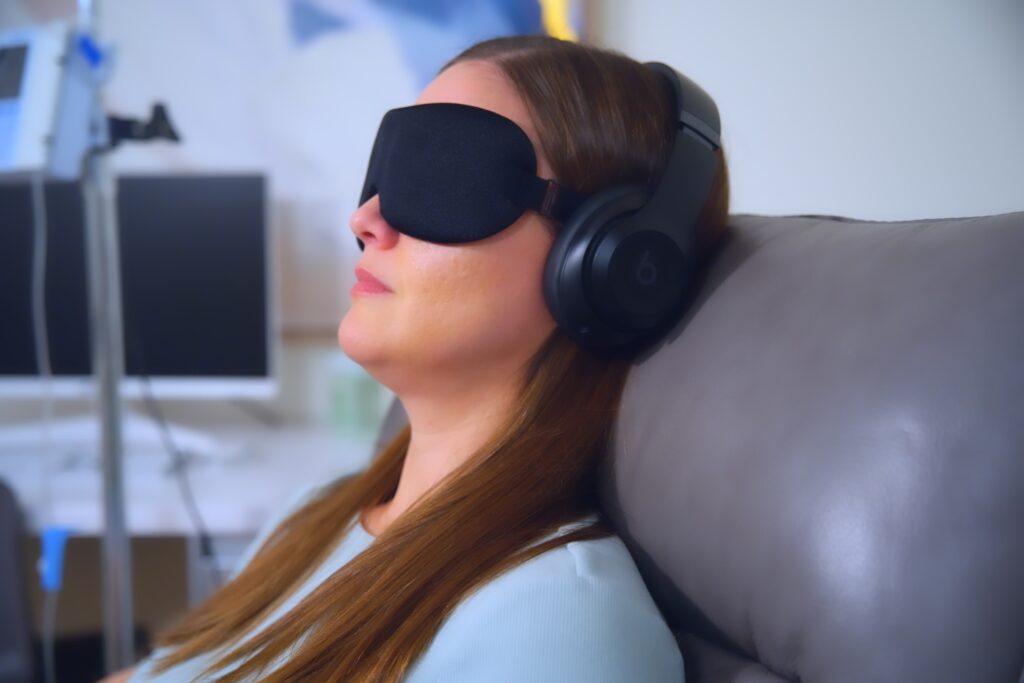Ketamine is one of the most talked-about therapies in mental health today. Its rise to prominence as a treatment for conditions like depression, anxiety, PTSD, OCD, and bipolar depression has given many new hope. But what does the research actually say? Is the science as strong as the hype? Let’s take a closer look at the evidence supporting ketamine therapy, how it works, and why it is essential to undergo treatment in a safe, clinical environment.
The Origins of Ketamine Therapy for Mental Health
Ketamine has a long history in medicine. Initially approved by the FDA in 1970 as an anesthetic, it now holds a place on the World Health Organization’s Model List of Essential Medicines. Its use as a mental health treatment, however, is relatively new. In 2000, a landmark study at Yale demonstrated ketamine’s antidepressant effects, showing that a single low dose could alleviate depression in less than 24 hours — a revelation that set the stage for the following decades of research.
In 2019, the FDA approved a ketamine-based nasal spray called Spravato, first for treatment-resistant depression and later also for suicidal ideation in adults with major depressive disorder. This marked another turning point, cementing ketamine’s reputation as a viable treatment for some of the most challenging mental health conditions.
What Is Known About How Ketamine Works
Unlike traditional antidepressants, which target other brain chemicals, ketamine primarily affects glutamate, the brain’s most abundant neurotransmitter. It has a much more rapid effect than other antidepressant drugs, and often starts to work just hours or even minutes after treatment — an effect that is still being researched.
Ketamine’s targeting of glutamate also promotes communication between brain cells, fostering the growth of new neural connections in a process also known as neuroplasticity. Researchers believe that by promoting neuroplasticity, ketamine helps reverse damage caused by chronic stress, greatly improving the brain’s ability to regulate mood and emotions.This repair process may explain why its antidepressant effects appear to strengthen with repeated doses and how it could help reduce the likelihood of depression relapse.
Research on Ketamine for Depression
Depression ranks as the third-leading cause of disability worldwide, and for many individuals, traditional treatments fall short. Approximately 30% of patients with major depression are unable to achieve remission despite trying multiple antidepressants. Ketamine has been extensively researched for depression and has shown particular effectiveness for treatment-resistant depression (TRD).
A 2019 study first demonstrated that esketamine nasal spray (a derivative of ketamine), when combined with antidepressants, led to significant improvements in depressive symptoms within 28 days compared to placebo. The group receiving esketamine experienced meaningful reductions in depression scores, showcasing its effectiveness as a short-term treatment for individuals with treatment-resistant depression (TRD). Many clinical trials and studies since have further confirmed that esketamine provides relief for treatment-resistant depression.
Though more research is needed on the long-term effects of ketamine for depression, one study showed that Spravato (esketamine) treatment demonstrated efficacy in maintaining stable remission for up to five years. Dr John Krystal, a pioneer of ketamine research and the Chair of Psychiatry at the Yale School of Medicine, has hailed it as a “paradigm shift for depression research and treatment,” stating that the mechanisms through which ketamine may work are overturning the received wisdom regarding the underlying neurobiology of depression.
Research on Ketamine for PTSD, Anxiety, OCD, and Bipolar Depression
Ketamine has also demonstrated significant potential for treating PTSD, anxiety, OCD, and bipolar depression. Studies have shown that ketamine could dramatically reduce obsessive-compulsive symptoms within hours of administration, with some patients reporting relief lasting up to two weeks. Similarly, studies indicate that using ketamine to treat PTSD can reduce symptoms by at least 30% for two-thirds of patients, providing hope for those unresponsive to traditional treatments. There is also a substantial body of research on ketamine treatment for bipolar depression that shows its effectiveness in treating suicidal ideation and the depressive episodes of those suffering from the condition.
Why Ketamine Works Best With Psychotherapy
Research consistently shows that ketamine’s benefits are most pronounced when combined with therapy. Ketamine-assisted psychotherapy (KAP) helps patients process the insights gained during treatment, ensuring that the changes in thought patterns and emotional regulation become lasting. At Keta Medical Center, we coordinate with your existing mental health providers to integrate ketamine therapy into a broader treatment plan. We also offer in-house psychiatric support with a therapist specialized in ketamine-assisted psychotherapy.
Why Supervised Care Matters
Ketamine therapy is safe when administered in a clinical setting. Studies confirm that there have been no reported cases of overdose or death from therapeutic use. While ketamine is officially classified as a drug with a moderate to low potential for dependence, it’s important to note that the chances for dependency when administered in a supervised medical environment are extremely low. Proper monitoring ensures accurate dosing, minimizes side effects, and enhances the overall treatment experience, making clinical care essential for achieving the best outcomes.
A Promising Path Forward
The data is clear: ketamine therapy is a powerful, evidence-based option for treating a range of mental health conditions. Its rapid action, long-lasting effects, and ability to address treatment-resistant cases make it a game-changer in the psychiatric field.
At Keta Medical Center, we are proud to offer ketamine therapy in a safe, compassionate environment. Whether you are struggling with persistent symptoms or seeking alternatives to traditional treatments, our expert team is here to guide you toward lasting relief and improved mental well-being.
Want to learn more about how ketamine therapy can help you reclaim your life?



